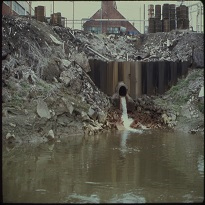
Contrary to New Jersey’s Industrial Site Recovery Act (“ISRA”) DuPont failed to post a bond which would cover cleanup costs when it spun the plant and liabilities off to Chemours. Carney’s Point is using the New Jersey Environmental Rights Act as its tool to police this violation of ISRA. The Environmental Rights Act can be invoked against a party who is “in violation” of environmental laws, regulations or ordinances when the New Jersey Department of environmental protection is unwilling, unable or ineffective in enforcing the law against the violator. Because of restrictive court interpretations, the potentially powerful tools of the act have not been utilized as fully as its drafters intended. Nonetheless, this action by Carneys Point creates an opportunity for protecting New Jersey community from abandoned, polluted sites which will remain unremediated unless the proper financial resources are devoted to cleaning them up.
Chambers Works is not the only DuPont site of concern in New Jersey. DuPont’s operations in Pompton Lakes New jersey left the soil badly polluted with lead and mercury and the groundwater contaminated with volatile organic compounds. Future remediation at Pompton Lakes—including dredging a 36 acre area of the lake for mercury contamination—will cost at least $87 million over the next several years.
And there are other DuPont sites in New Jersey as well—like to former dynamite manufacturing plant in Gibbstown NJ—which still have ongoing cleanups.
Let’s hope Carneys Point succeeds to holding DuPont—and the DEP’s feet to the fire and assuring continuing that financial responsibility for these critical cleanups.

